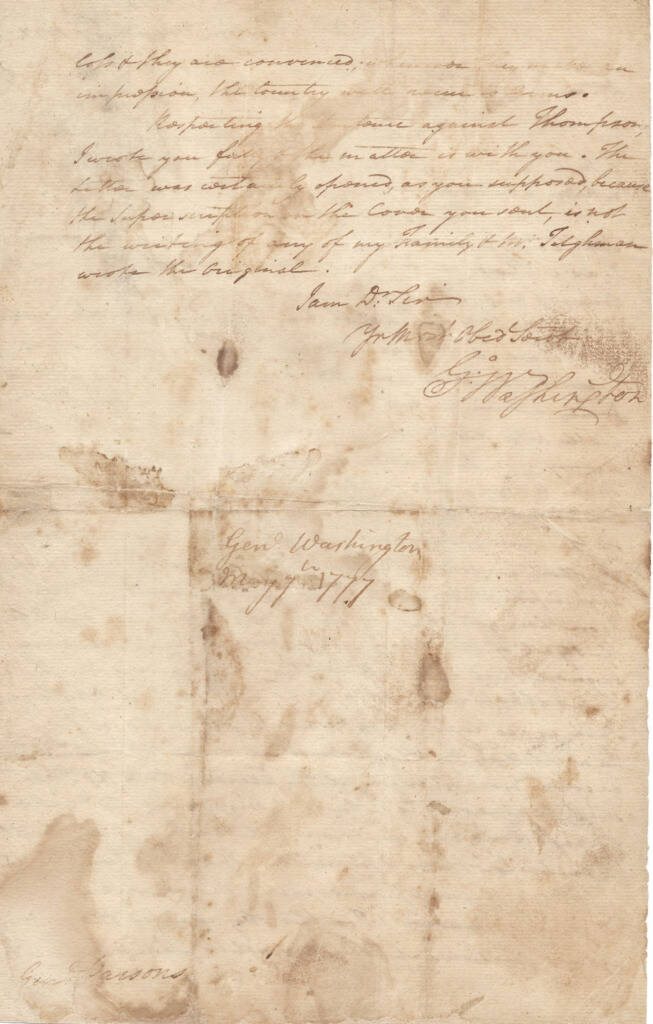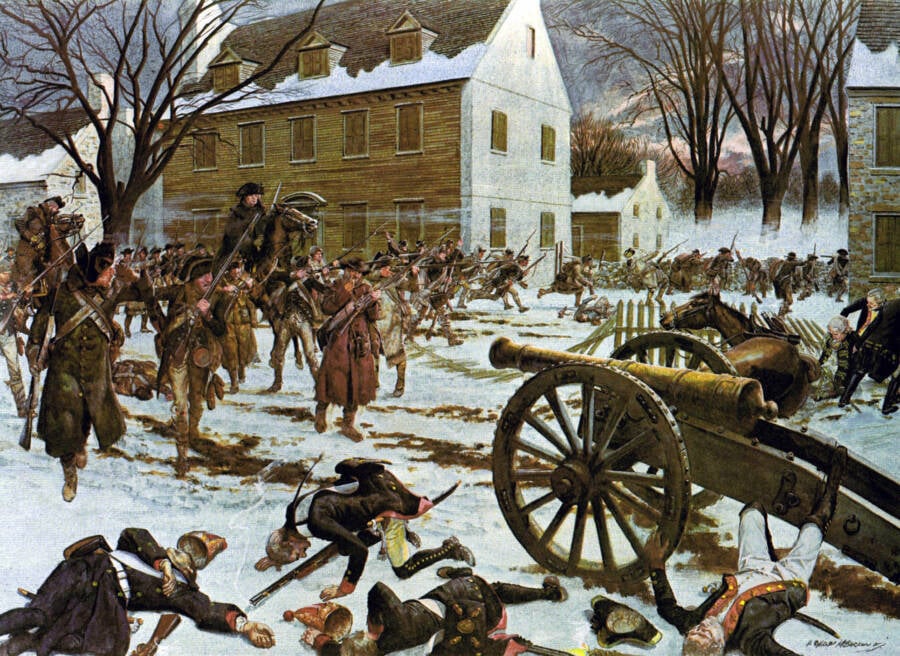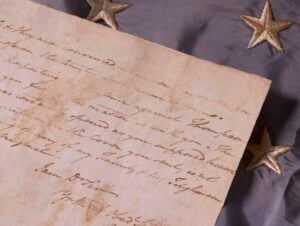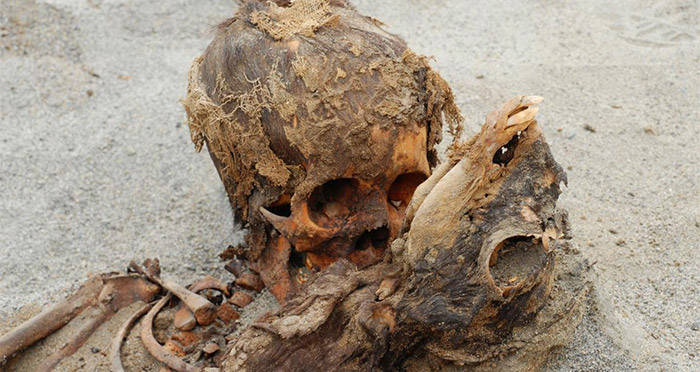“Unlocking History: George Washington’s Wartime Letter Hits the Auction Block for $150,000—What Secrets Does It Hold?”
Rather, Washington saw something inspirational in the Danbury raid. Though the British had destroyed the depot and managed to escape, they had done so at great personal cost — all thanks to the citizens and militia who had risen up as the British made their way through the countryside afterward.
“I am inclined to believe they [the British] will pursue such measures with a great degree of caution,” Washington told Parsons. “For tho’ they afforded themselves the stores at Danbury, yet it was with considerable loss and they are convinced whenever they make an impression, the Country will recur to arms.”

Raab CollectionThough likely dictated to an aide, George Washington signed the letter himself.
After touching on a few other matters, including smallpox inoculations for the troops, Washington signed the letter: “I am Dear Sir, your most obedient servant, G. Washington.”
Indeed, by May 1777, George Washington had reason to be optimistic.
The Place Washington’s Letter Holds In American History
When the Revolutionary War broke out in 1775, George Washington initially struggled to muster up an army powerful enough to fight back against the British. In 1776, he had been forced to retreat from New York City, and was generally plagued by a lack of supplies, insufficient troops, and a reluctant Congress. But things had started to change at the end of that year.

Public DomainA painting of the Battle of Trenton, a small but significant victory for George Washington and his men.
In December 1776, Washington triumphed at the Battle of Trenton, and followed this victory with the Battle of Assunpink Creek and the Battle of Princeton. The tide seemed to be turning in his favor, which may have informed Washington’s confidence in his letter to Parsons. Even when he wrote to Congress about the raid, Washington stated that “the damage we sustained at Danbury was not so great . . . the chief loss [being tents].”












